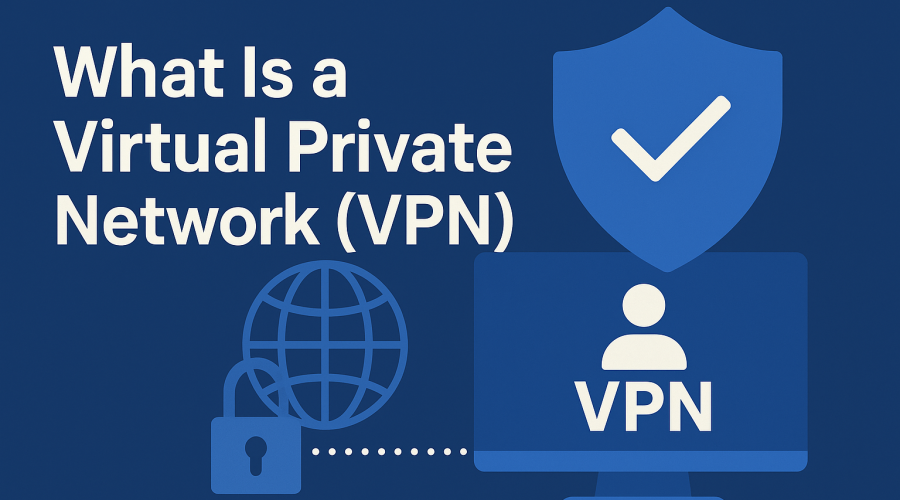What Is a Virtual Private Network (VPN) and How Does It Work?
What Is a Virtual Private Network (VPN)?
In an age where digital privacy is more valuable than ever, the term “VPN” comes up often—but what exactly is a Virtual Private Network? A VPN, or Virtual Private Network, is a secure tunnel between your device and the internet. It hides your IP address, encrypts your data, and keeps your online activities private—even on public Wi-Fi.
Why Do People Use VPNs?
People use VPNs for various reasons:
- To protect their personal data from hackers on public networks
- To access region-locked content like Netflix, Hulu, or BBC iPlayer
- To avoid being tracked by websites, advertisers, or even their own internet service provider (ISP)
- To bypass censorship in countries with restricted internet access
How Does a VPN Work?
When you connect to a VPN, it reroutes your internet traffic through an encrypted server in a different location. This process:
- Hides your real IP address
- Encrypts your internet traffic, making it unreadable to anyone trying to snoop
- Allows you to appear as if you’re browsing from another country
For example, if you’re in the Philippines and connect to a VPN server in the US, websites will think you’re in the US. This is how users access streaming content, social media platforms, and websites that may otherwise be blocked or restricted.
Quick Benefits of Using a VPN
- Secure browsing on public Wi-Fi
- Access to global streaming libraries
- Enhanced anonymity online
- Protection from hackers and surveillance
- Freedom to browse without geographic restrictions
Want to Stay Private Online?
👉 Try NordVPN now — one of the most trusted VPNs on the market.
Get NordVPN Today and enjoy fast, secure, and anonymous browsing.
Who Needs a VPN?
- Remote workers accessing sensitive company data
- Travelers using public hotel or airport Wi-Fi
- Streamers wanting access to more content
- Activists or journalists operating in restricted countries
- Everyday users who simply value their online privacy
Is a VPN Legal?
In most countries, yes. VPNs are legal and widely used for both personal and professional purposes. However, some countries with strict internet regulations may have banned or restricted VPN usage. Always check your local laws before using one.
Will a VPN Slow Down My Internet?
Slightly, but premium services like NordVPN are optimized for speed. In many cases, users barely notice a difference—especially when connecting to nearby servers.
Your Privacy Shouldn’t Be Optional
In a world full of data breaches, tracking cookies, and surveillance, a VPN is your first line of defense.
👉 Secure your connection today with NordVPN
Click here to activate exclusive deals: vpnhelper.net/buy/nordvpn


Leave a Reply